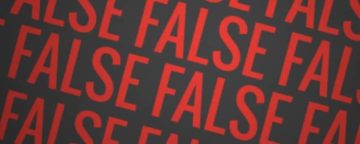Millions of Americans continue to believe misinformation about vaccination and Covid-19, and these beliefs are associated with hesitancy to get themselves and their children vaccinated – or, if they are vaccinated, to get a booster.


Millions of Americans continue to believe misinformation about vaccination and Covid-19, and these beliefs are associated with hesitancy to get themselves and their children vaccinated – or, if they are vaccinated, to get a booster.

"Creating Conspiracy Beliefs: How Our Thoughts Are Shaped" (Cambridge University Press), by researchers at the University of Pennsylvania and Western Illinois University, investigates influences on conspiracy beliefs.

Four in 10 Americans and 7 in 10 heavy users of conservative media say they'd take ivermectin if exposed to someone with Covid-19, a new Annenberg survey finds.

APPC and FactCheck.org are part of an NSF-funded collaboration to counter misinformation online by narrowing the gap between research and response.

FactCheck.org and Univision Noticias have received funding from the Google News Initiative to produce fact checks about COVID-19 immunization misinformation as short bilingual video explainers.

FactCheck.org has released its "whoppers of 2020" on the year's political fabrications. Once again, President Trump tops the list though President-elect Biden is on it, too.

Distinguished fellow Susan Ness, co-chair of the Transatlantic Working Group, wrote in Slate that European and American governments should work in tandem on digital platform regulation.